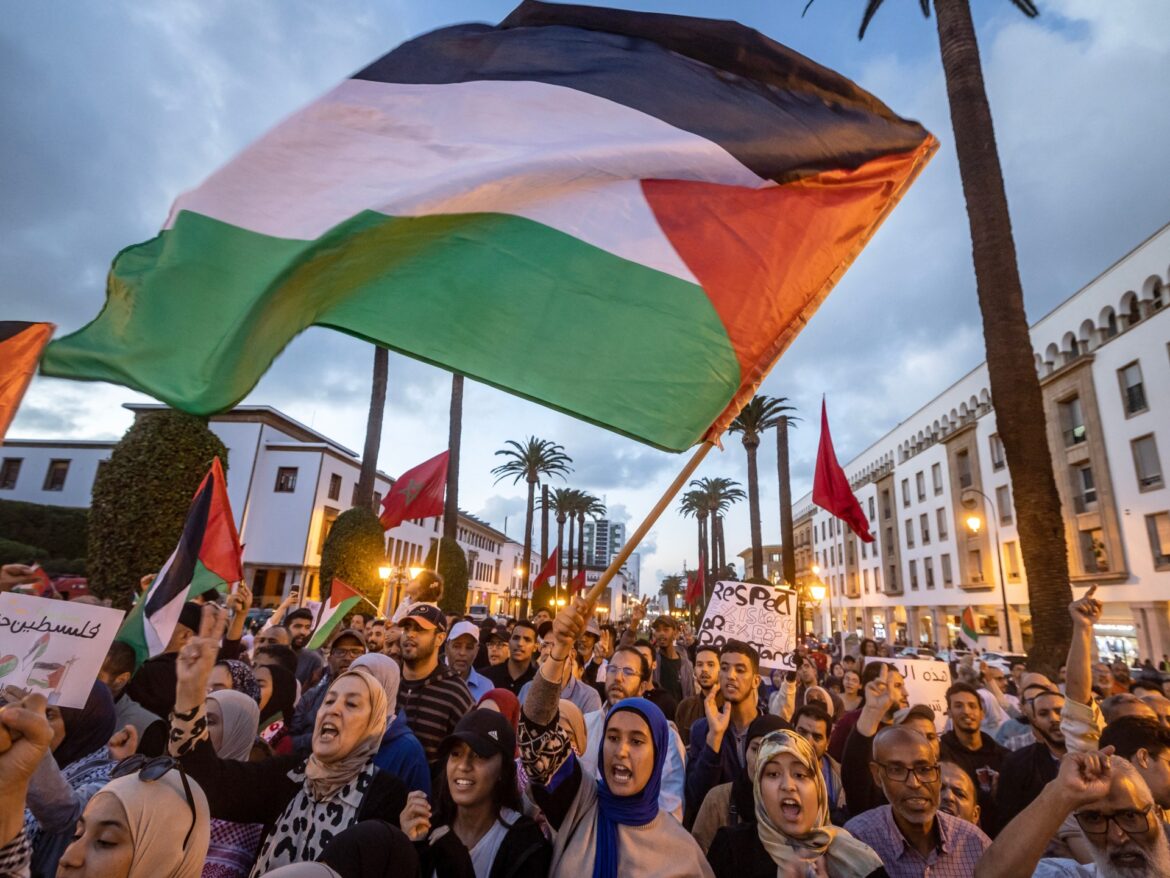The response of Arab governments to Israel’s war on Gaza, like their response to the four previous wars against the besieged Palestinian enclave, has been weak and fragile, to say the least. But unlike Israel’s past aggressions, this ongoing genocide – if not stopped – will have dangerous repercussions throughout the Arab world.
Taken by surprise, Arab leaders took action only after the Arab public made it clear that it would not tolerate Israeli atrocities against Gaza’s 2.3 million Palestinians. Although Palestine was and remains the most important Arab issue, they only expressed themselves, mainly through chatter and clichés.
At their Arab League meeting in Cairo on October 11, Arab foreign ministers condemned the killing and targeting of civilians “on both sides”, equating the occupied and the occupiers, a Palestinian resistance group and the Israeli occupying army. They spoke vaguely of the need for peace, as Israel set about reenacting the Nakba (catastrophe) of 1948 with a new round of violent ethnic cleansings.
The bombing of al-Ahli hospital on October 17, during which some 470 Palestinians were massacred, angered Arab and international public opinion, forcing Arab regimes to react with a little more determination.
Days later, Arab foreign ministers successfully pressured UN member states to adopt a UN General Assembly resolution condemning both the October 7 attacks and the atrocities committed by Israel and calling for an “immediate, lasting and sustained humanitarian truce leading to a cessation of hostilities”. .
The overwhelming support for the resolution, although watered down and non-binding, demonstrated Israel’s isolation within the international community. But the Israeli authorities completely ignored him, clearly driven by the principle that “the world says what it wants, Israel does what it must”.
They nonchalantly launched a devastating ground invasion of the Gaza Strip, cutting telecommunications in the territory for 36 hours and sowing even more death and destruction.
Israel believes that Arab states are too divided, powerless and indifferent to Palestinian suffering to respond adequately.
This is not false, unfortunately.
Official Arab support for the Palestinian cause has steadily declined over the years. It all started with Egyptian President Anwar Sadat’s decision to sign a peace treaty with Israel in 1979. Three years later, no one tried to stop the Israeli invasion of Lebanon, which expelled the Liberation Organization of Palestine (PLO) of the country and paved the way for the Israeli invasion of Lebanon. the emergence of Hezbollah in Lebanon and Hamas in Palestine.
Over the next four decades, Arab regimes continued to show less and less interest in siding with the Palestinian cause, as the Arab world was ravaged by multiple wars, including the Iraq–Iran conflict and the Iraq’s invasion of Kuwait, two US-led Gulf Wars. wars, as well as multiple civil wars following the 2011 Arab Spring revolutions.
Today, Arab leaders may be willing to speak up for Palestine, but few are willing or able to put their words into practice. Those who have the means to influence events do not mean what they say, and the few who mean what they say do not have the means to follow through.
Indeed, Arab leaders have generally been at odds with Israel as a divisive colonial enterprise among them, but they have also been indifferent to the plight of the Palestinians, just as they have been to the suffering of their citizens.
In fact, some regimes have treated their people almost as badly as Israel has treated the Palestinians. Many defended Palestinian rights only because it gave them some semblance of legitimacy in the eyes of their people.
Arab impotence has opened the way for other regional players, Iran and Turkey, to flex their muscles and expand their influence at the expense of the Arabs, creating another level of regional complexity and division. Iran’s growing influence and irresponsible policies in a number of Arab countries have pushed some frenzied regimes to openly ally themselves with Israel in exchange for greater American support.
But this has proven to be short-sighted since neither Israel nor the United States can or will guarantee their security.
Today, these regimes tacitly blame Iran and Hamas for the ongoing escalation in Gaza, which aims to undermine their new partnerships with Israel and drag them into a regional war. Indeed, preachers, journalists and experts associated with the government in countries including Egypt, Saudi Arabia and the United Arab Emirates have condemned what they see as Hamas’s Iran-inspired attempts to push the region in war, inflicting unbearable suffering on the Palestinian people.
But such positions have not influenced Arab public opinion. Wherever they were allowed to do so, Arabs took to the streets en masse to protest Israel’s atrocities and to call for international intervention to end the massacres of Palestinian civilians. The protests could turn into massive upheavals that could threaten regional stability if no action is taken.
As Israel continues to decimate Gaza and commit massacres of Palestinian children, women and men, its Arab partners must reconsider their normalization and cooperation agreements before being forced to do so under heavy public pressure .
This process of denormalization must begin with the Palestinian Authority itself, whose insistence on maintaining relations with Israel has allowed it to deepen its military occupation and accelerate the theft of Palestinian land.
It is high time for President Mahmoud Abbas’ regime to break ties with the Israeli government and start protecting its civilians from the Israeli army and settlers wreaking havoc in the West Bank.
Arab leaders must come together to end the genocide in Gaza, no matter what. For only by uniting and speaking with one voice in support of Arab and Palestinian rights can they deter Israeli aggression and foreign interference in Arab affairs.



